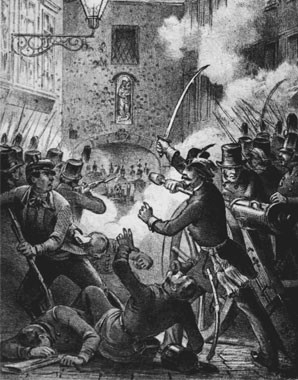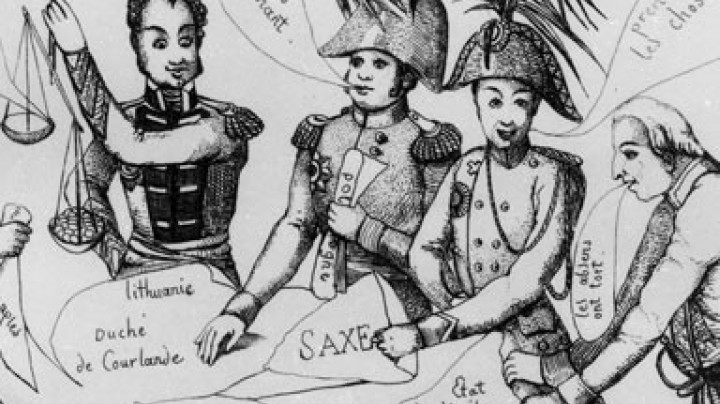The old versus the new social order
As the nineteenth century progressed, revolutions and industrialization began to shake the foundations of the pre-modern social order based on the estates.
The idea of a society divided into estates characterized the Habsburg Empire from the Middle Ages until the middle of the nineteenth century. Here the emperor and king presided over the hierarchical order. The aristocracy had obligations towards the Emperor and seigneurial rights over the lower estates. The classical medieval estate-based society was divided into three large segments, and of these the third estate, made up of the peasantry, comprised the majority of the population.
The counting rhyme ‘Emperor, king, nobleman, burgher, peasant, beggarman…’ makes no mention of the clergy, who were entrusted with the care of people’s souls and were also subject to a separate ecclesiastical jurisdiction. The gradations within the individual estates represented a precise and widely-ramified hierarchical order, in which rights and obligations were preordained. Within the aristocracy, for instance, there were several sub-groups. The king was followed by the princes of the Empire, who were enfeoffed with a territory by the monarch. After these came the higher nobility, which was again distinct from the lower nobility, who were subject to a territorial overlord and not directly to the king.
Around 80 percent of the population consisted of peasants and other rural inhabitants. The third estate were tied into the system of landlordism, that is, a condition of subservience to the landowner. Day-labourers, servants and cottagers belonged to the rural lower class, since they had no property of their own and had to support themselves exclusively from wage labour.
Over the course of time this social order had become increasingly differentiated, with new strata such as the bourgeoisie developing.
Eventually decisive social upheavals took place during the nineteenth century. Revolutions and industrialization called into question the supposedly God-given estate-based social order. Henceforth birth and provenance would no longer determine membership of a particular estate. The medieval category of ‘estate’ gave way to the modern concept of ‘class’.














